As a long-time vegan chef, I’ve learned that maintaining optimal health on a plant-based diet needs careful attention to nutrition. While a well-planned vegan diet can provide most essential nutrients, certain vitamins and minerals need special consideration.
This is where vegan multivitamins come in, serving as a valuable tool to bridge potential nutritional gaps.
Understanding Vegan Nutrition
A vegan diet excludes all animal products, including meat, dairy, eggs, and honey. While rich in fiber, antioxidants, and many vitamins and minerals, a vegan diet can be low in certain nutrients typically found in animal-based foods.
The Role of Vegan Multivitamins
Vegan multivitamins are specifically formulated to address the potential nutrient gaps in a plant-based diet. They provide a convenient way to ensure you’re meeting your nutritional needs without relying solely on fortified foods or multiple individual supplements.
Benefits of Vegan Multivitamins
- Convenience: A single supplement can provide multiple essential nutrients.
- Tailored formulation: Designed to address the specific needs of vegans.
- Peace of mind: Helps ensure you’re meeting your nutritional requirements.
- Cost-effective: Often more affordable than purchasing individual supplements.
This post contains affiliate links. If you click on one of these links and make a purchase, I may earn a small commission at no additional cost to you. This helps support my blog and allows me to continue providing valuable content. Thank you for your support!
It can be pretty challenging to find absolutely everything you need from just one supplement. Nevertheless, there are some really good options available on Amazon. I’ve rounded up some of my favorites here, to save you having to go hunting!
Recommended products:
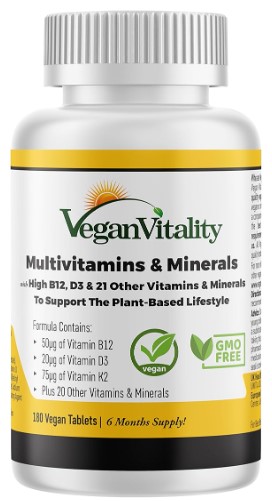
This is one of the most comprehensive multivitamin and mineral supplements on the market today, and is trusted by thousands of Amazon customers.
- Pros:
- Excellent range of vitamins and minerals
- Contains the bioavailable forms
- Third-party tested
- Allergen-free and vegan certified
- Cons:
- Does not include Omega-3
Vegan Vitality do offer their Omega 3 as a separate product, and considering the Algae Oil formula, this is an excellent option, in combination with their comprehensive multivitamin.
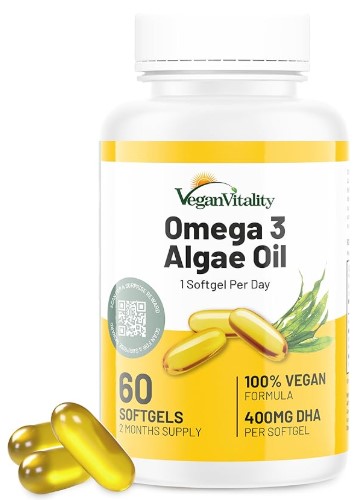
Adapting to Different Life Stages
Our nutritional needs evolve throughout our lives, and our approach to supplementation should too.
Pregnancy and Breastfeeding
Vegan mothers-to-be and new mothers have increased nutrient needs, particularly for folate, iron, and DHA. Look for prenatal vegan multivitamins specifically formulated for this life stage.
These often contain higher amounts of folic acid, iron, and omega-3 fatty acids.
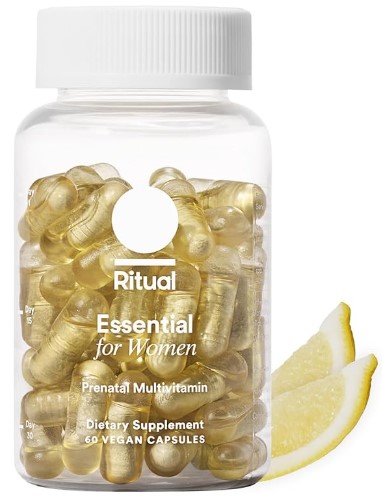
Ritual Essential Prenatal Multivitamin is fully-certified, and covers all the bases for those key times before, during and after pregnancy. It also has an ingenious ‘smart capsule’: Innovative nested capsule technology acts like a barrier system to keep fat soluble and water soluble forms separated, within a single capsule, so key ingredients can be taken in one serving. Our delayed-release capsules are designed to dissolve later in the small intestine, an ideal place to absorb nutrients.
Athletic Performance
Vegan athletes may benefit from extra nutrients to support their training and recovery. Consider multivitamins with added B-complex vitamins, iron, and antioxidants.
Amazon customers rave about JYM Vita Sports Multivitamin. It contains vital vitamins and minerals to support athletic endeavours, but leaves out those which would have a detrimental effect on absorption. Some customers find it helpful to bolster these with a separate supplement later in the day, to avoid conflicts with absorption.
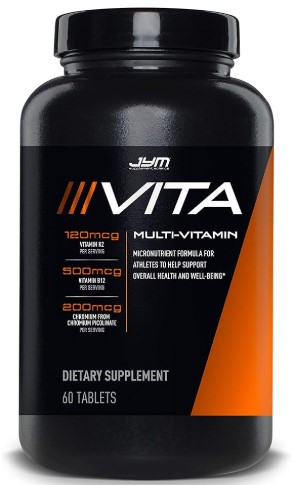
Some athletes also find that creatine supplements, which are available in vegan forms, can enhance performance.
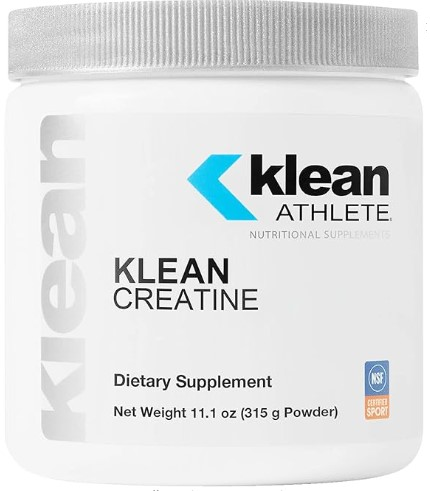
Klean Athlete’s Klean Creatine is a properly-certified dietary supplement to support muscle strength, performance and recovery. Klean Athlete is trusted by more than 350 professional and collegiate sports teams, their athletes, coaches and staff.
Aging Gracefully
As we age, our ability to absorb certain nutrients may decrease. Older adults might need higher amounts of vitamin B12, vitamin D, and calcium.
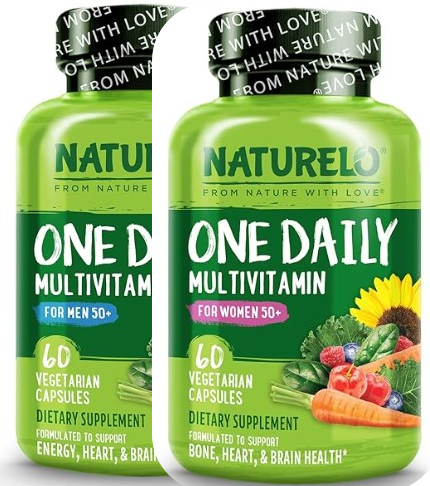
Although marketed as if separate for Men and Women 50+, this fantastic multivitamin contains the same vital vitamins and minerals, together with whole food extracts, to provide an excellent supplement to help everyone to maintain a healthy older age.
Some multivitamins for seniors also include nutrients that support cognitive function, such as omega-3 fatty acids and antioxidants.
Global Healing’s Organic Multivitamin with Minerals is the real deal, complete with all the vital vitamins and minerals, with Omega 3, 6 and 9 fatty acids, and an excellent range of blended organic antioxidants. If you want the convenience of a ‘one-stop-shop’, this would be it!
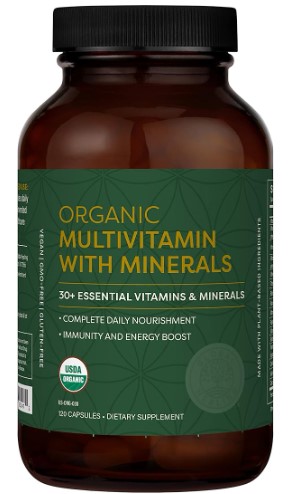
Advanced Considerations
Key Nutrients of Concern
Vitamin B12
Vitamin B12 is crucial for nerve function, DNA synthesis, and red blood cell formation. It’s primarily found in animal products, making it challenging for vegans to obtain through diet alone.
A deficiency can lead to anemia, nervous system damage, and other serious health issues.
Iron
While plant foods contain iron, it’s in the non-heme form, which is less easily absorbed by the body compared to the heme iron found in animal products. Vegans may need to consume more iron-rich plant foods or consider supplementation to meet their needs.
Zinc
Plant sources of zinc are less bioavailable than animal sources. Phytates in whole grains and legumes can further inhibit zinc absorption, potentially increasing the risk of deficiency in vegans.
Vitamin D
Often called the ‘sunshine vitamin,’ vitamin D is synthesized in the skin when exposed to sunlight. However, many people, regardless of diet, don’t get enough sun exposure to meet their needs. Since many dietary sources of vitamin D are animal-based, vegans need to be particularly vigilant about their intake.
Omega-3 Fatty Acids
Plant foods like flaxseeds and walnuts provide ALA, a type of omega-3 fatty acid. However, the body’s conversion of ALA to the more beneficial EPA and DHA is inefficient.
Vegans may benefit from algae-based omega-3 supplements to ensure adequate intake.
Choosing the Right Vegan Multivitamin
With numerous options available, selecting the right vegan multivitamin can be overwhelming. Here are key factors to consider:
Comprehensive Nutrient Profile
Look for a multivitamin that includes:
- Vitamin B12 (preferably as methylcobalamin)
- Vitamin D3 (from lichen)
- Iron
- Zinc
- Iodine
- Omega-3 fatty acids (from algae)
- Calcium
- Vitamin K2
Bioavailability
The form of nutrients in your multivitamin affects how well your body can absorb and utilize them. For example:
- Methylcobalamin is generally more bioavailable than cyanocobalamin for vitamin B12.
- Chelated minerals are often better absorbed than inorganic forms.
- D3 is more effective at raising blood levels of vitamin D compared to D2.
Third-Party Testing
Choose multivitamins that have been third-party tested for purity and potency. This ensures you’re getting what the label promises and that the product is free from contaminants.
Allergen-Free and Vegan-Certified
Ensure your multivitamin is free from common allergens and carries a reputable vegan certification. This aligns with your dietary needs and ethical choices.
Dosage and Serving Size
Consider how many pills or capsules you’ll need to take daily. Some people prefer a once-daily supplement, while others don’t mind taking multiple doses throughout the day.
Implementing Vegan Multivitamins in Your Routine
Incorporating vegan multivitamins into your daily life effectively needs some planning and consistency.
Timing Matters
Most multivitamins are best taken with a meal to enhance absorption and reduce the likelihood of stomach upset. I find taking mine with breakfast sets a positive tone for the day and helps me remember consistently.
Listen to Your Body
While multivitamins are generally safe, pay attention to how you feel after starting a new supplement. If you experience any unusual symptoms, consult with a healthcare provider.
Combine with Whole Foods
A multivitamin supplements a balanced diet. Focus on eating a variety of whole plant foods to get the full spectrum of nutrients, phytochemicals, and fiber that no pill can replicate.
Be Consistent
For optimal benefits, take your multivitamin regularly. Consider setting a daily reminder or keeping your supplement in a visible place to help establish a routine.
Common Pitfalls to Avoid
In my years of using vegan multivitamins, I’ve learned some valuable lessons. Here are some common mistakes to watch out for:
Overdoing It
More isn’t always better when it comes to supplements. Stick to the recommended dosage unless advised otherwise by a healthcare professional.
Some nutrients, like iron and vitamin A, can be harmful in excess.
Relying Solely on Supplements
A varied, whole-food plant-based diet should be the foundation of your nutrition strategy. Vegan multivitamins are a supplement, not a replacement for healthy eating.
Ignoring Individual Needs
We’re all unique, and our nutritional needs can vary based on factors like age, gender, activity level, and health conditions. What works for one person may not be optimal for another.
Neglecting to Reassess
Your nutritional needs can change over time. Periodically reassess your diet and supplement routine, especially if you experience significant life changes or health issues.
For those ready to take their nutritional knowledge to the next level, consider these advanced topics:
Nutrient Synergies and Interactions
Some nutrients work better together, while others can interfere with each other’s absorption. For example:
- Vitamin C enhances iron absorption
- Calcium can interfere with iron absorption
- Vitamin D aids calcium absorption
Understanding these interactions can help you improve your supplement routine. You might choose to take iron-containing supplements at a different time than those containing calcium, for instance.
Genetic Variations
Genetic factors can influence how we process certain nutrients. For example, some people have a genetic variation that affects their ability to convert beta-carotene to vitamin A efficiently.
In such cases, a multivitamin with preformed vitamin A might be useful.
Another example is the MTHFR gene variation, which can affect folate metabolism. People with this variation may benefit from methylated forms of B vitamins.
Environmental Factors
Our nutritional needs can be influenced by where we live and our lifestyle. For example:
- Those in northern latitudes might need more vitamin D supplementation because of limited sun exposure.
- People living in areas with iodine-deficient soil may need to pay extra attention to their iodine intake.
- Individuals exposed to high levels of pollution might benefit from additional antioxidants.
Absorption Enhancers and Inhibitors
Certain compounds can enhance or inhibit nutrient absorption:
- Phytates in whole grains and legumes can inhibit mineral absorption
- Black pepper (piperine) can enhance the absorption of various nutrients
- Fat-soluble vitamins (A, D, E, K) are better absorbed when taken with a source of fat
Consider these factors when timing your supplements and planning your meals.
Specific Nutrients in Focus
Let’s take a closer look at some key nutrients often included in vegan multivitamins:
Vitamin B12
Vitamin B12 is crucial for vegans. Look for a multivitamin that provides at least 100% of the recommended daily allowance (RDA).
Methylcobalamin or adenosylcobalamin forms are preferred over cyanocobalamin for their better bioavailability.
Vitamin D3
Vegan D3 is typically derived from lichen. It’s more effective at raising blood levels of vitamin D compared to D2.
Aim for at least 1000 IU (25 mcg) daily, though some people may need more based on blood tests.
Omega-3 Fatty Acids
Algae-based omega-3 supplements provide DHA and EPA directly, bypassing the need for conversion from ALA. Look for a multivitamin that includes at least 250 mg of combined DHA and EPA.
Iron
Iron needs vary widely among people. Menstruating women typically need more iron than men.
Look for a multivitamin that provides around 18 mg of iron, preferably in a form like ferrous bisglycinate, which is well-absorbed and gentle on the stomach.
Zinc
Zinc is important for immune function and wound healing. Aim for a multivitamin that provides 8-11 mg of zinc, ideally in a chelated form for better absorption.
Iodine
Iodine is crucial for thyroid function. Look for a multivitamin that provides around 150 mcg of iodine, often sourced from kelp or other seaweeds.
Quality Considerations
When choosing a vegan multivitamin, quality should be a top priority. Here are some factors to consider:
Manufacturing Standards
Look for multivitamins produced in facilities that follow Good Manufacturing Practices (GMP). This ensures that the product is consistently produced and controlled according to quality standards.
Transparency
Reputable companies are transparent about their sourcing and manufacturing processes. They should be willing to provide detailed information about their products upon request.
Sustainability
Consider the environmental impact of your supplement choice. Some companies use eco-friendly packaging or source their ingredients sustainably.
Additives and Fillers
Check the ingredient list for unnecessary additives or fillers. While some additives are necessary for the stability or form of the supplement, excessive artificial ingredients should be avoided.
Potential Side Effects and Precautions
While vegan multivitamins are generally safe, it’s important to be aware of potential side effects and take necessary precautions:
Digestive Discomfort
Some people may experience mild digestive issues when starting a new multivitamin. Taking the supplement with food can often reduce this.
Interactions with Medications
Certain nutrients can interact with medications. For example, vitamin K can interfere with blood thinners.
Always consult with a healthcare provider if you’re taking any medications.
Risk of Overdose
While it’s rare to overdose on vitamins from food sources, it’s possible to consume too much of certain nutrients through supplements. This is particularly true for fat-soluble vitamins (A, D, E, K) which can accumulate in the body.
Allergies
Check the ingredient list carefully if you have any known allergies. Some multivitamins may contain allergens like soy or tree nuts.
Here are some exciting developments to watch for:
Personalized Nutrition
Advances in genetic testing and nutritional science are paving the way for more personalized supplement recommendations. In the future, we may see vegan multivitamins tailored to person genetic profiles.
Improved Bioavailability
Ongoing research is focused on enhancing the bioavailability of plant-based nutrients. This could lead to more effective vegan multivitamins that need lower doses.
Sustainable Sourcing
As sustainability becomes increasingly important, we’re likely to see more emphasis on eco-friendly sourcing of nutrients. This could include new plant-based sources of traditionally animal-derived nutrients.
Integration with Technology
Smart packaging and apps that remind you to take your supplements or track your nutrient intake are already emerging. This trend is likely to continue, making it easier to maintain a consistent supplement routine.
Putting It All Together
Incorporating vegan multivitamins into your plant-based lifestyle doesn’t have to be complicated. Here’s a simple action plan:
- Assess your diet and lifestyle to identify potential nutrient gaps.
- Choose a high-quality vegan multivitamin that addresses these gaps.
- Establish a consistent routine for taking your supplement.
- Monitor how you feel and consider periodic blood tests to check your nutrient levels.
- Continuously educate yourself about vegan nutrition and adjust your approach as needed.
Remember, the goal of using vegan multivitamins is to support your overall health and well-being, allowing you to thrive on your plant-based diet.
People Also Asked
What nutrients do vegans need to supplement?
Vegans often need to supplement vitamin B12, vitamin D, omega-3 fatty acids, iron, zinc, and iodine. Individual needs may vary based on diet and health status.
Are vegan multivitamins as effective as regular multivitamins?
Well-formulated vegan multivitamins can be just as effective as non-vegan ones. The key is to choose a high-quality supplement that provides bioavailable forms of essential nutrients.
How often should I take a vegan multivitamin?
Most vegan multivitamins are designed to be taken daily. However, always follow the dosage instructions on the product label or as advised by your healthcare provider.
Can vegan multivitamins replace a balanced diet?
No, vegan multivitamins should supplement, not replace, a balanced diet. A varied, whole-food plant-based diet should still be the foundation of your nutrition.
Are there any side effects of taking vegan multivitamins?
While generally safe, some people may experience mild digestive discomfort when starting a new multivitamin. Taking the supplement with food can often help.
How long does it take for vegan multivitamins to work?
The time frame can vary depending on your initial nutrient status and the specific nutrients. Some effects may be noticeable within a few weeks, while others may take months.
Can children take vegan multivitamins?
There are vegan multivitamins formulated specifically for children. However, it’s important to consult with a pediatrician before starting any supplement regimen for a child.
Do I need to take a vegan multivitamin if I eat a varied plant-based diet?
While a varied plant-based diet can provide many nutrients, certain vitamins and minerals may still be challenging to obtain in enough quantities. A multivitamin can provide added insurance.
How do I know if my vegan multivitamin is working?
Regular blood tests can help you monitor your nutrient levels. You may also notice improvements in energy levels, immune function, or other aspects of health.
Can I take additional supplements along with a vegan multivitamin?
In some cases, additional supplements may be useful. However, it’s important to be cautious about overlapping nutrients to avoid excessive intake.
Consult with a healthcare provider for personalized advice.
Key Takeaways
- Vegan multivitamins can help address potential nutrient gaps in a plant-based diet.
- Look for comprehensive formulations with bioavailable nutrients and third-party testing.
- Use multivitamins as a supplement to, not a replacement for, a varied whole-food diet.
- Adapt your supplement strategy to your person needs and life stage.
- Stay informed about vegan nutrition and be open to adjusting your approach as needed.
